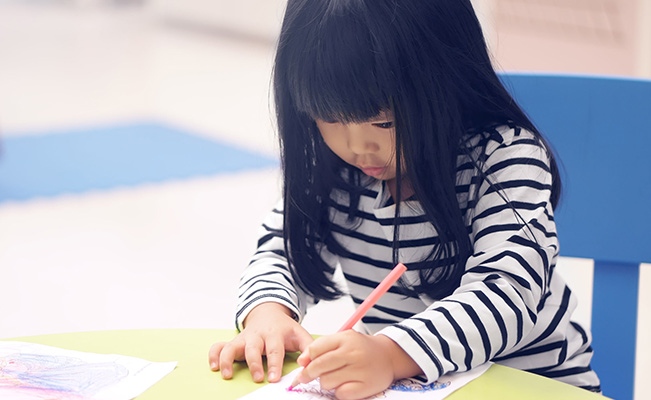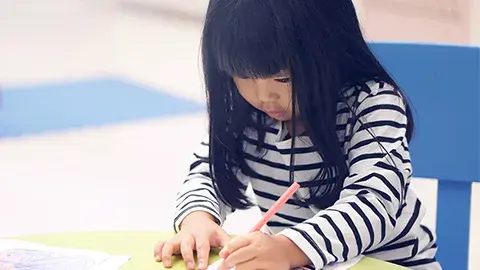
Children are naturally inquisitive of everything around them. This is normal; it’s their way of starting to explore and learn about the world1. And as they continue to grow and learn, pretty soon they’ll be asking loads more questions about anything that might catch their interest. As a parent, you are their primary source of information. But when they become of school age and start to absorb and explore the world outside the home, they will start to take in information not just from their teachers, but also from classmates and playmates. Seeing as children are exposed to various sources of information at this stage, they may be quick to believe just about anything without being able to differentiate between facts and inaccuracies. Therefore, it is important to cultivate critical thinking skills in your child so they can be equipped to make informed decisions that they can carry over to their adult life.
What are critical thinking skills?
You can say that it is actively seeking knowledge beyond what is on the surface of the answers you get when you ask a question. It’s a deeper kind of thinking where we don’t take things for granted but question, analyze, and evaluate what we read, hear, say, or write2. Developing a person’s critical thinking skills helps one in making informed, learned decisions based on the analysis of the information given and revealed on further research.
Children’s natural curiosity about everything around them is an already excellent foundation to build on critical thinking skills. Their drive to need to know “Why is the sky blue?”, “How do airplanes fly?”, “Where do babies come from?” and the multitude of follow-up questions thereafter. Due to the inquisitiveness and imagination they possess, this instinctively leads them to question the answers that they receive. This is a good trait to cultivate as they grow up to become well-informed adults.
Tips to help cultivate critical thinking skills
Provide opportunities for play. Critical thinking skills are honed when a child attempts different ways to figure out how things work3. This opportunity usually presents itself during play at early childhood years, where a child explores cause and effect. Some examples of these situations include balancing a block on top of a tower, or rolling two marbles down a chute at the same time. Pairing different environments with little experiments such as these, children are able to intuitively attempt varying methods to yield different outcomes3. Hands-on experiences such as these provide a solid foundation for later abstract critical thinking.
Don’t stop at the first question. The problem with answering a “what?” question is that being able to answer it gives a false sense of security; it seems that they already know about a topic, but the knowledge gleaned is only at surface-level4. This is not a good practice to nurture for critical thinking. Instead you should encourage open communication. So if your child asks a question, be prepared to answer any follow up questions. If you’re the one asking, help your child think deeper about the topic by asking “why?” and “how?’ questions.
Encourage your child’s curiosity and interests. Urge your child to explore. Get them to do more and ask more questions. Let them test out their own theories on how the world works and think critically about the results5. As a parent, you can be a willing participant in the process. You can do this by answering the seemingly endless follow-up questions, or by conducting experiments to test a theory or two they might have. This will most likely have you looking up answers to your child’s questions too. It will be a good opportunity for you to brush up on your critical thinking skills as well.
Wait. Give your child enough time to think or attempt to do something on their own6. Resist the urge to swoop in with the immediate answer or show them “the right way” to do something. Allowing them some time for reflection or to figure out what to do next on their own encourages the development of problem solving skills in your child in both mind and motor functions. These are both important critical thinking skills.
Introduce a different point of view. Prompt your child to think on how they see things can be different if taken from other people's point of view. Ask, for example, if the child's sibling or friend would have the same ideas or opinion about something that your child likes or dislikes. This tactic establishes that an idea should be assessed from different points of view7. Additionally, it promotes listening and learning from different viewpoints aside from the child's.
Be part of Club Mama today to unlock a world of privileges and benefits which include free samples, exclusive vouchers, promotions, expert advice and many more!
References:
1 "Your Baby at 2 Months." UCSF Benioff Children's Hospital San Francisco. https://www.ucsfbenioffchildrens.org/education/your_baby_at_2_months/
2 "Critical thinking." Monash University. https://www.monash.edu/rlo/research-writing-assignments/critical-thinking
3 ”Developing Critical Thinking Skills in Kids.” Bright Horizons Educational Team. https://www.brighthorizons.com/family-resources/developing-critical-thinking-skills-in-children
4 Halton, M. "Critical thinking is a 21st-century essential—here's how to help kids learn it." Ideas.Ted.com. https://ideas.ted.com/critical-thinking-is-a-21st-century-essential-heres-how-to-help-kids-learn-it/
5 Rymanowicz, K. "The importance of critical thinking for young children." Michigan State University Extension. https://www.canr.msu.edu/news/the_importance_of_critical_thinking_for_young_children
6 Ritchie, E. "How to develop critical thinking skills in young children at home." The British School New Delhi. https://www.british-school.org/how-to-develop-critical-thinking-skills-in-young-children-at-home/
7 "Teaching critical thinking skills is important for students of all ages." Walden University. https://www.waldenu.edu/online-bachelors-programs/bs-in-elementary-education/resource/seven-ways-to-teach-critical-thinking-in-elementary-education

